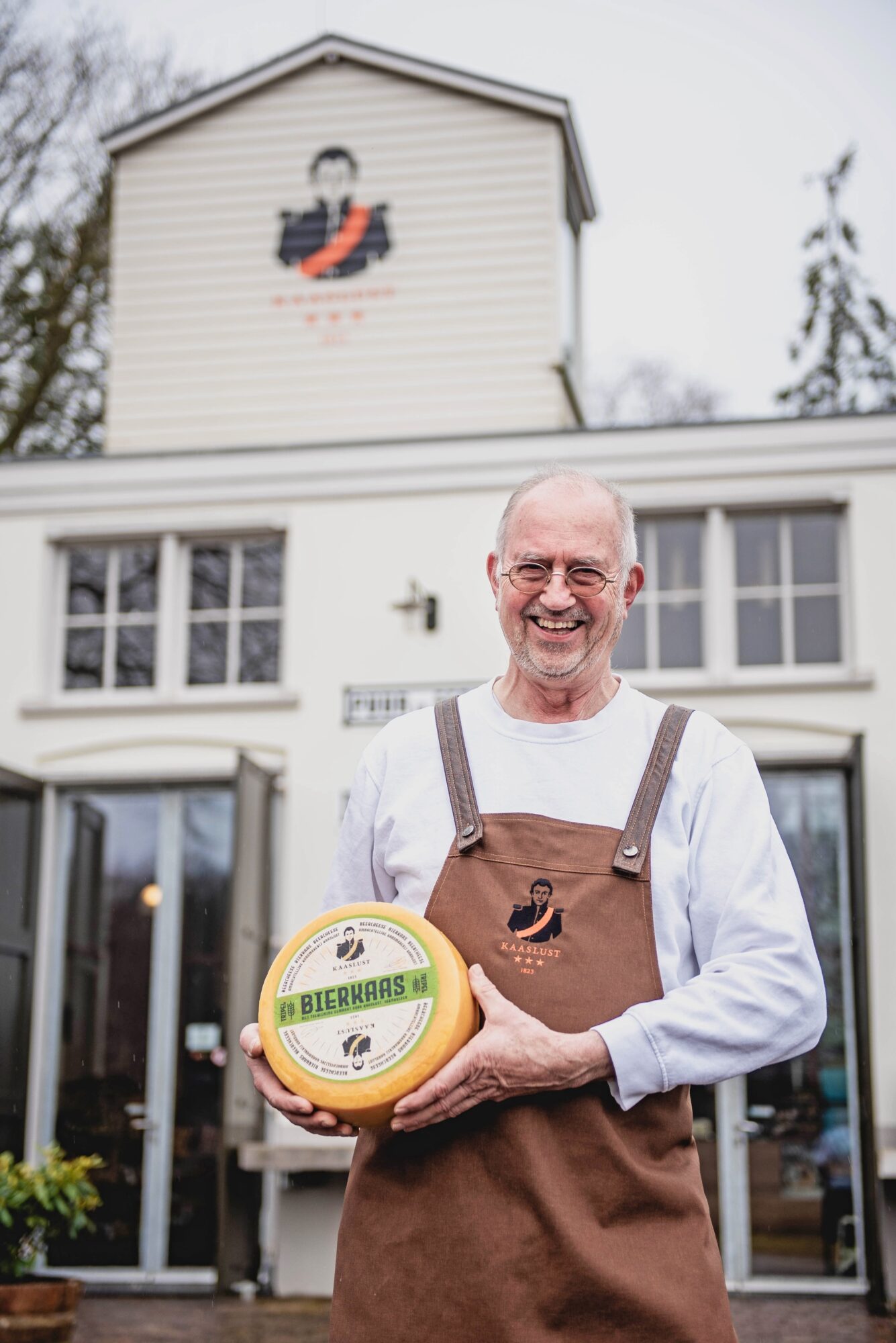With his seventy years of life, Jan Craens has accumulated a wealth of experience. He is a food technologist, steward, business administrator, consultant, cheese maker and entrepreneur, known for his company Kaaslust in Veenhuizen. The fact that he is winding down his involvement with Kaaslust gave him the space to participate in the Business Innovation Program Food.
Because: Jan is enthusiastically developing a plant-based variant for cheese. 'This training saves me from detours and mistakes,' he laughs. 'I am a man who thinks in terms of possibilities and in doing so I sometimes tend to seek the edge of the ravine. Thanks to the BIPF, I am proceeding more consciously.'
Small steps
'By nature I'm the type of just do it and see how it goes,' says the entrepreneur. 'The chance of reckless investment would have been quite high if NOM had not alerted me to this innovation program. Because there I learned to work according to a step-by-step plan and to do better preparation by doing market and customer research. Then you can make more targeted choices and try things out without going all-in immediately. In Silicon Valley they do it too: realize something with a small budget and test it quickly, so that you can adjust and refine in a process of small steps. And along the way, keep checking whether your actions fit the phase you are in. That helps to do the right things at the right time and to attract suitable parties.
As a seasoned entrepreneur, Jan loves being reinvigorated with new insights. 'I carry a large toolbox of knowledge and experience with me. That's an advantage, although it also gets in my way sometimes, because I'm used to doing things a certain way. That is why I am glad that I was able to participate in the BIPF even in the very early stages of this innovation. Everything stands or falls with a good product and that is what I am experimenting with. I have no worries about the opportunities. Customers have been asking for plant-based alternatives for some time and this movement is growing. The trick is not to do what others are already doing. What I'm working on now is a more nutritious alternative to the existing vegan varieties. And tasty, of course, because people only buy it if it tastes good.'
Stewardship region
Customer interviews revealed that taste is often a stumbling block with plant-based products. Also, people who make conscious choices want as few additives in their food as possible. 'As a food technologist and cheese maker, I have a lot of experience with flavors and textures,' says Jan. 'There are plenty of possibilities, and I already have a whole list of people who would like to taste at this development stage. The process requires a long breath, which is why it is important for me to find partners. Also to transfer my knowledge, because in terms of age I am definitely not a starter anymore. NOM helps to establish lines of communication. They are involved in promising initiatives in food innovation in the Northern Netherlands. That's what I like to see: knowledge clusters and production in our own region. That fits with stewardship, offers opportunities for entrepreneurs and creates employment.
Market validation is core of Business Innovation Program Food
A growing number of startups and SMEs have powerful ideas to contribute to the food transition. Yet the failure rate in food innovation is still extremely high: as many as 95 percent cannot get a healthy business case off the ground. When it comes to our food, we apparently don't change that easily. Or are entrepreneurs insufficiently concerned with customer needs?
Exactly that - checking customers' needs - appears to be a promising area for improvement. 'Market validation, market validation, and once again market validation,' emphasizes Joep de Vries, who is involved in developing North Netherlands ecosystems within the agrifood sector from the NOM. 'The pitfall of many food innovators is that they ask the wrong questions. Because of their enthusiasm about their idea, they miss important information about the market: what needs and problems are there? How do you offer a solution with your product?'At the Business Innovation Program Food (BIPF), participants learn first and foremost to do thorough market and customer research.'
In addition to raising awareness of what really matters to customers, BIPF pays attention to the life stage of the company: where are you now and what actions fit with that? 'We check in five crucial areas: product, market, business model, team and funding,' Joep explains. 'If you spend too much time, energy and money on actions that don't fit the momentum, you will grow skewed in your processes and - at best - be on the road for much longer. In this course, we teach participants to focus and get started as effectively as possible.'
